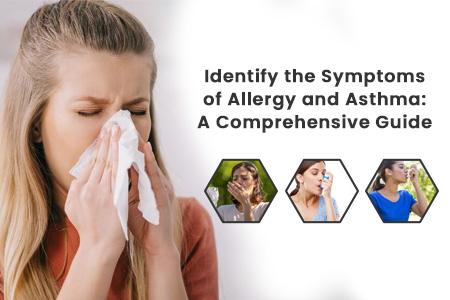
 2023-12-13
2023-12-13
Allergies and asthma are common health concerns that affect millions of people worldwide. Both conditions involve the body's immune system reacting to substances that are usually harmless, triggering a range of symptoms that can vary in severity. Understanding the symptoms of allergy and asthma is crucial for timely diagnosis and effective management. In this comprehensive guide, we'll delve into the distinct symptoms of these conditions and explore how recognizing them early can lead to better health outcomes.
Symptoms of Allergy
Allergies occur when the immune system reacts abnormally to substances known as allergens. These allergens can be found in various sources, such as pollen, dust mites, pet dander, certain foods, and insect stings. The symptoms of allergies can manifest in different ways, affecting the respiratory system, skin, digestive system, or even the cardiovascular system.
Respiratory Symptoms:
Sneezing and Runny Nose: One of the most common signs of allergies is persistent sneezing and a runny or congested nose. These symptoms are often triggered by exposure to airborne allergens like pollen or mold.
Coughing and Wheezing: Allergies can also lead to coughing and wheezing, especially in individuals with asthma. This can make breathing difficult and contribute to the development of asthma symptoms.
Skin Symptoms:
Itching and Hives: Allergic reactions can cause itching, redness, and the development of hives on the skin. These symptoms may be triggered by certain foods, insect bites, or contact with allergens.
Digestive Symptoms:
Nausea and Vomiting: In some cases, exposure to allergens can lead to digestive symptoms such as nausea and vomiting. Food allergies, in particular, can cause severe reactions in some individuals.
Cardiovascular Symptoms:
Anaphylaxis: In rare but severe cases, an allergic reaction can lead to anaphylaxis, a life-threatening condition that requires immediate medical attention. Symptoms include difficulty breathing, a drop in blood pressure, and loss of consciousness.
Symptoms of Asthma
Asthma is a chronic respiratory condition characterized by inflammation of the airways, making it difficult for individuals to breathe. Asthma symptoms can vary in intensity and may be triggered by factors such as allergens, exercise, or respiratory infections.
Shortness of Breath:
One of the hallmark symptoms of asthma is shortness of breath. Individuals with asthma may experience difficulty breathing, especially during physical activity or exposure to asthma triggers.
Chest Tightness:
Asthma can cause a feeling of tightness or pressure in the chest. This sensation may be accompanied by pain or discomfort and can contribute to further breathing difficulties.
Coughing:
Persistent coughing, especially at night or in the early morning, is common in individuals with asthma. This cough may be dry or produce mucus.
Wheezing:
Wheezing is a high-pitched whistling sound that occurs during breathing and is indicative of narrowed airways. It is a classic symptom of asthma and may be audible even without a stethoscope.
Increased Respiratory Rate:
Individuals with asthma often exhibit an increased respiratory rate, as the body tries to compensate for reduced airflow. This can lead to rapid, shallow breathing.
Recognizing the Overlapping Symptoms:
It's important to note that allergies and asthma can coexist, and the symptoms of one condition may exacerbate the other. For example, exposure to allergens can trigger an asthma attack in susceptible individuals. Therefore, recognizing the overlapping symptoms is crucial for accurate diagnosis and effective management.
Coughing and Wheezing:
Both allergies and asthma can cause coughing and wheezing. While allergies may contribute to respiratory symptoms, individuals with asthma may experience intensified coughing and wheezing during allergic reactions.
Shortness of Breath:
Shortness of breath is a common symptom in both conditions. Asthma directly affects the airways, while allergies can indirectly contribute to respiratory distress, especially in individuals with asthma.
Chest Tightness:
Chest tightness can occur in both allergies and asthma. It is a shared symptom that reflects the impact of these conditions on the respiratory system.
Knowing the symptoms of allergy and asthma is crucial for early detection and effective management. Whether you're dealing with sneezing and runny nose from allergies or experiencing shortness of breath and wheezing from asthma, recognizing these signs allows for timely intervention and improved quality of life. If you suspect you have allergies or asthma, it's essential to consult with a healthcare professional for a thorough evaluation and personalized treatment plan. By staying informed and proactive, individuals can take control of their health and breathe easier.
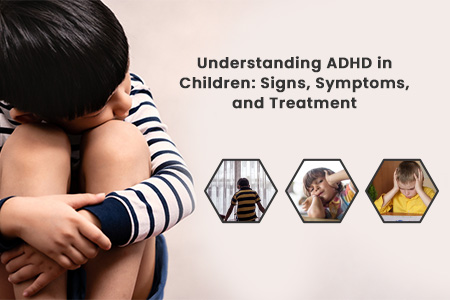 Understanding ADHD in Children Signs, Symptoms, and Treatment 2024-07-11 by : Prasidh Hospitals -
Understanding ADHD in Children Signs, Symptoms, and Treatment 2024-07-11 by : Prasidh Hospitals -
 Pregnancy Planning Preparing for a Healthy Pregnancy 2024-07-11 by : Prasidh Hospitals -
Pregnancy Planning Preparing for a Healthy Pregnancy 2024-07-11 by : Prasidh Hospitals -
 Understanding High Blood Pressure Causes, Risks, and Management 2024-07-11 by : Prasidh Hospitals -
Understanding High Blood Pressure Causes, Risks, and Management 2024-07-11 by : Prasidh Hospitals -
 Understanding Hormonal Imbalances Causes, Symptoms, and Treatments for a Balanced Life 2024-05-27 by : Prasidh Hospital
Understanding Hormonal Imbalances Causes, Symptoms, and Treatments for a Balanced Life 2024-05-27 by : Prasidh Hospital
 Navigating Orthopaedic Surgery Procedures, Recovery, and Benefits 2024-05-25 by : Prasidh Hospital
Navigating Orthopaedic Surgery Procedures, Recovery, and Benefits 2024-05-25 by : Prasidh Hospital
 Boosting Your Child's Immune System Paediatric Advice for a Healthy Future 2024-05-24 by : Prasidh Hospital
Boosting Your Child's Immune System Paediatric Advice for a Healthy Future 2024-05-24 by : Prasidh Hospital
 Joint Replacement Surgery: What to Expect and How to Prepare 2024-04-12 by : Prasidh Hospital
Joint Replacement Surgery: What to Expect and How to Prepare 2024-04-12 by : Prasidh Hospital
 The Vital Importance of Regular Gynecologist Check-ups for Women's Health 2024-03-06 by : Prasidh Hospital
The Vital Importance of Regular Gynecologist Check-ups for Women's Health 2024-03-06 by : Prasidh Hospital
 The Lifesaving Role of Neonatal Intensive Care Units (NICUs) for Premature Babies 2024-03-07 by : Prasidh Hospital
The Lifesaving Role of Neonatal Intensive Care Units (NICUs) for Premature Babies 2024-03-07 by : Prasidh Hospital
 A Comprehensive Guide to Joint Replacement Surgery Preparing for the Journey Ahead 2024-03-04 by : Prasidh Hospital
A Comprehensive Guide to Joint Replacement Surgery Preparing for the Journey Ahead 2024-03-04 by : Prasidh Hospital
 Breaking Down Osteoporosis Maintaining Bone Health 2024-02-16 by : Prasidh Hospital
Breaking Down Osteoporosis Maintaining Bone Health 2024-02-16 by : Prasidh Hospital
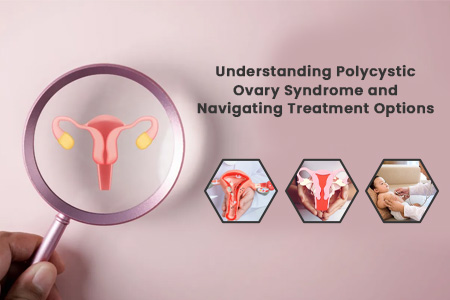 Understanding Polycystic Ovary Syndrome and Navigating Treatment Options 2024-02-16 by : Prasidh Hospital
Understanding Polycystic Ovary Syndrome and Navigating Treatment Options 2024-02-16 by : Prasidh Hospital
 Protecting Precious Lives Neonatal Pneumonia and Promoting Prasidh Hospital's Expert Care 2024-02-09 by : Prasidh Hospital
Protecting Precious Lives Neonatal Pneumonia and Promoting Prasidh Hospital's Expert Care 2024-02-09 by : Prasidh Hospital
 Rediscovering Sound A Journey through Hearing Loss Solutions at Prasidh Hospital 2024-01-29 by : Prasidh Hospital
Rediscovering Sound A Journey through Hearing Loss Solutions at Prasidh Hospital 2024-01-29 by : Prasidh Hospital
 Unveiling Solutions for PCOS Prasidh Hospitals Holistic Approach to Womens Health 2024-01-25 by : Prasidh Hospital
Unveiling Solutions for PCOS Prasidh Hospitals Holistic Approach to Womens Health 2024-01-25 by : Prasidh Hospital
 Challenges of ADHD Prasidh Hospital's Comprehensive Approach to Care 2024-01-24 by : Prasidh Hospital
Challenges of ADHD Prasidh Hospital's Comprehensive Approach to Care 2024-01-24 by : Prasidh Hospital
 Understanding Acid Peptic Disease Symptoms, Causes, and Treatment 2023-12-29 by : Prasidh Hospital
Understanding Acid Peptic Disease Symptoms, Causes, and Treatment 2023-12-29 by : Prasidh Hospital
 Nurturing Healthy Appetites A Guide to Improving Your Child's Eating Habits 2023-12-27 by : Prasidh Hospital
Nurturing Healthy Appetites A Guide to Improving Your Child's Eating Habits 2023-12-27 by : Prasidh Hospital
 Nourishing Pregnancy Foods to Avoid for a Healthy Journey 2023-12-20 by : Prasidh Hospital
Nourishing Pregnancy Foods to Avoid for a Healthy Journey 2023-12-20 by : Prasidh Hospital
 Identify the Symptoms of Allergy and Asthma A Comprehensive Guide 2023-12-13 by : Prasidh Hospital
Identify the Symptoms of Allergy and Asthma A Comprehensive Guide 2023-12-13 by : Prasidh Hospital
 Hyderabad's Solution to Dry Mouth Problems Expert Care 2023-11-28 by : Prasidh Hospital
Hyderabad's Solution to Dry Mouth Problems Expert Care 2023-11-28 by : Prasidh Hospital
 Strengthening Your Foundation: Osteoporosis Safety and Prevention Tips 2023-11-15 by : Prasidh Hospital
Strengthening Your Foundation: Osteoporosis Safety and Prevention Tips 2023-11-15 by : Prasidh Hospital
 Maximizing Your Chances of a Normal Delivery: Tips for a Healthy Pregnancy 2023-11-07 by : Prasidh Hospital
Maximizing Your Chances of a Normal Delivery: Tips for a Healthy Pregnancy 2023-11-07 by : Prasidh Hospital
 Laparoscopic surgery 2023-07-04 by : prasidhhospitals
Laparoscopic surgery 2023-07-04 by : prasidhhospitals
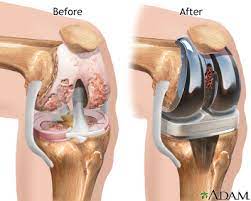 How to Manage Pain Swelling 2022-07-23 by : admin
How to Manage Pain Swelling 2022-07-23 by : admin
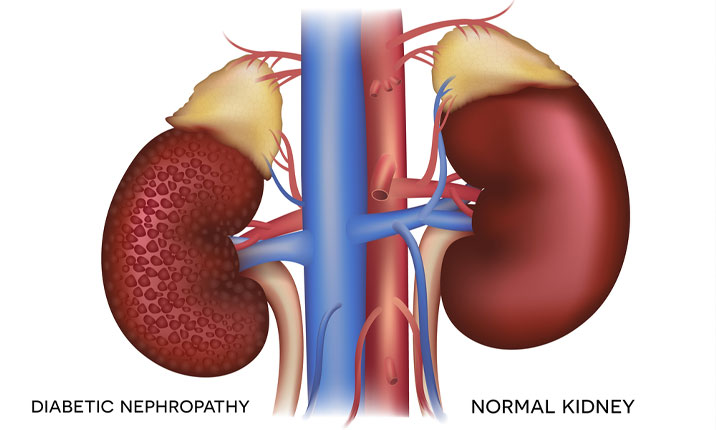 kidney health and diasbetes 2022-07-23 by : Admin
kidney health and diasbetes 2022-07-23 by : Admin
 how to increase the chances of normal delivery? 2022-07-23 by : admin
how to increase the chances of normal delivery? 2022-07-23 by : admin
Copyright © Prasidh rights reserved.